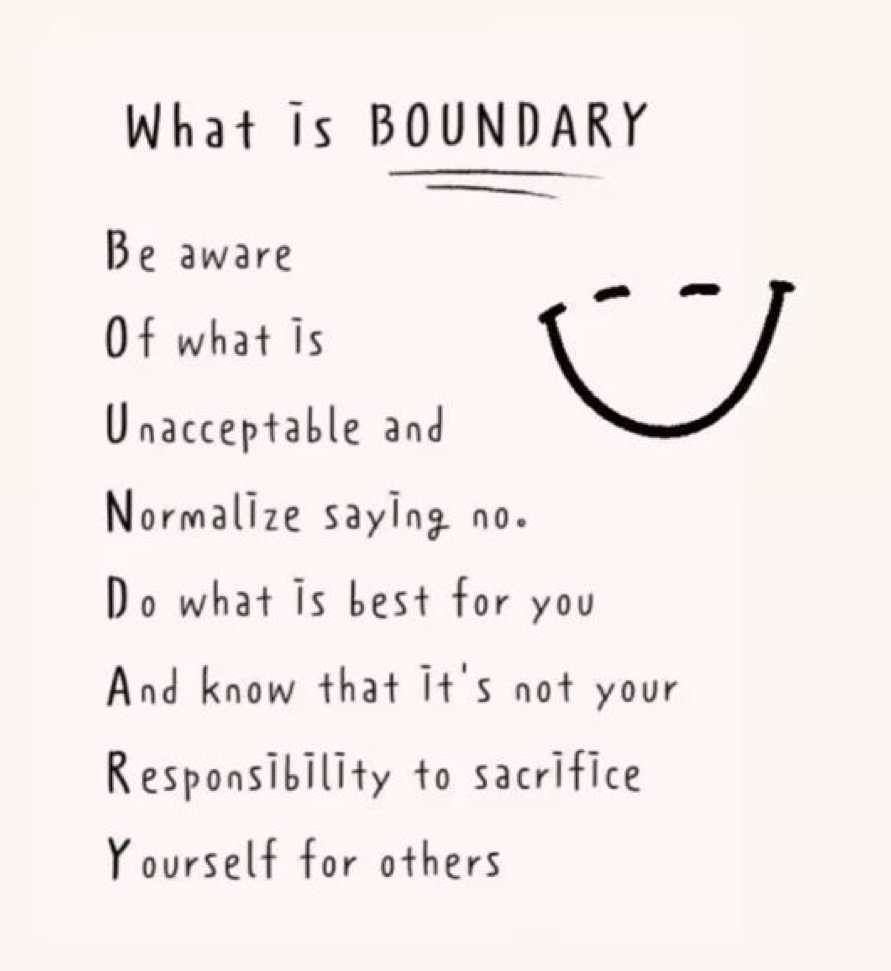The Power of Boundaries: A Key to Better Mental Health and Wellbeing
In a world that often demands our attention, time, and energy, setting boundaries can feel like a pretty radical act of self-care. Yet, without them, we risk burnout, strained relationships, and a decline in our mental health. Boundaries are not about keeping people out; they’re about letting the right things in - creating space for balance, joy, and mental wellbeing. If you’ve ever felt overwhelmed, overcommitted, or undervalued, this is your reminder: boundaries are essential for a healthier, happier you.
What Are Boundaries, and Why Do They Matter?
Boundaries are the limits we set to protect our emotional, mental, and physical health. They define what we are comfortable with and communicate our needs clearly to others. Far from being selfish, boundaries are an act of self-respect and compassion for those around us.
Research supports their importance: A 2017 study in Frontiers in Psychology found that people who practise boundary-setting are less likely to experience stress and emotional exhaustion. This is especially critical in a society where one in four adults in the UK suffers from a mental health issue each year, according to Mind UK.
The Mental Health Benefits of Setting Boundaries
Establishing healthy boundaries can have transformative effects on your wellbeing:
1. Reduced Stress
Overcommitting and saying “yes” to everything can leave you drained. Setting limits helps you prioritise what truly matters, easing stress and anxiety.
2. Improved Relationships
Boundaries foster mutual respect and understanding in relationships. When you communicate your needs, others are more likely to reciprocate, strengthening connections.
3. Better Work-Life Balance
With remote work blurring the lines between professional and personal life, setting clear boundaries around work hours is vital to avoid burnout.
4. Enhanced Self-Worth
Boundaries remind you - and others - that your time and energy are valuable. This boosts self-esteem and fosters a sense of control over your life.
Signs You May Need to Set Boundaries
If you’re unsure whether you need stronger boundaries, ask yourself:
• Do I often feel overwhelmed or resentful?
• Do I struggle to say “no” without guilt?
• Do I prioritise others’ needs over my own, even to my detriment?
If you answered “yes” to any of these, it may be time to re-evaluate how you manage your limits.
How to Set Healthy Boundaries
Boundary-setting is a skill that takes practice. Here’s a step-by-step guide to get started:
1. Identify Your Limits
Reflect on what feels comfortable and what doesn’t - whether it’s in relationships, work, or personal time. Recognise what, for you, is non-negotiable.
2. Communicate Clearly
Be honest but kind. Use “I” statements to express your needs. For example, “I need some quiet time after work to recharge” is both respectful and firm.
3. Learn to Say No
Saying “no” is an act of self-care, not selfishness. It’s okay to decline commitments that don’t align with your priorities.
4. Stick to Your Boundaries
Consistency is key. If others test your boundaries, gently remind them of your limits. This reinforces their importance.
5. Seek Support if Needed
Boundary-setting can be challenging, especially if you’re used to people-pleasing. Speaking with a therapist or counsellor can help you navigate this process.
Real-Life Impact: Boundaries at Work
Consider this example: A 2021 study by Deloitte UK found that 77% of employees have experienced burnout at their current job. One contributing factor is the inability to set boundaries around workload and availability. By creating simple boundaries - such as setting clear work hours and turning off email notifications after hours - employees can significantly reduce their stress levels and improve their overall wellbeing.
The Empathy Factor: Boundaries and Relationships
It’s natural to worry about how boundaries might affect your relationships. You might fear disappointing others or being seen as difficult. But here’s the truth: healthy boundaries improve relationships. They allow you to show up as your best self, fostering deeper trust and respect. Remember, those who value and respect you will appreciate your honesty. Those who don’t may not have your best interests at heart.
Final Thoughts: Boundaries as Self-Care
Setting boundaries isn’t about building walls; it’s about creating pathways to a healthier, more balanced life. It’s a courageous act of self-love that protects your mental health and enables you to thrive.
Start small. Define one boundary today - whether it’s taking a lunch break away from your desk or saying no to a social obligation you’re dreading. With time and practice, boundary-setting will become second nature, and the rewards for your wellbeing will be immense.
Your turn: What’s one area of your life where you could benefit from stronger boundaries? Share your thoughts and take the first step towards greater mental health and wellness.


